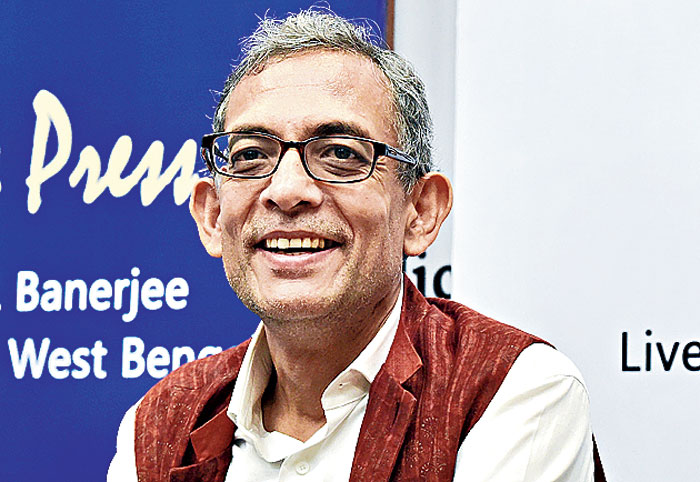Indian doctors collaborating with Nobel laureate economist Abhijit Vinayak Banerjee have set out to determine whether a decision support system parked in a mobile app could help unqualified rural healthcare practitioners provide correct guidance to patients.
In a preliminary assessment exercise, the researchers have distributed the decision support system, an artificial intelligence-based mobile application, to several dozen unqualified rural healthcare practitioners in Birbhum, Purulia and South 24-Paragnas, the collaborating doctors said.
The doctors are hoping this app will help improve advice and guidance that patients receive from unqualified practitioners who remain the first point of contact for people in areas bereft of MBBS-qualified doctors.
The project in the three districts follows their 2016 study in Bengal that found that unqualified practitioners, when imparted lessons by human trainers spread over nine months, are able to better manage diarrhoea, chest pain and respiratory illness.
In the new study, the researchers are trying to assess whether practitioners’ performance can improve through the mobile phone app. “When you see a set of symptoms, instead of deciding what to do on your own, you put the symptoms in the cellphone and see what the expert would say in the circumstances,” Banerjee said.
The objective of the app-based guidance is to help the unqualified practitioners make a tentative diagnosis but avoid decisions they are not qualified to take, such as prescribe antibiotics, said collaborating doctors at the Liver Foundation, a Calcutta-based non-government health organisation.
“The app — like the human-imparted lessons we gave earlier — is intended to guide them on what to do and as importantly what not to do,” said Abhijit Chowdhury, a senior gastroenterologist with the Liver Foundation and the Institute of Post-Graduate Medical Education and Research, Calcutta.
The Liver Foundation worked with Raxa Health, a Delhi-based health informatics company, to develop the app.
“There are limitations of logistics to human training — it can be expensive to use humans to train practitioners, and the training itself has a decay factor, the knowledge can wear away over time,” said Surajit Nundy, Raxa Health’s founder who is trained in internal medicine, public health and neural computation.
The app that Nundy and his colleagues have developed relies on what he says is a “problem-based learning strategy” to help practitioners guide patients according to their needs. Chowdhury said the app had built-in referral points at which unqualified practitioners need to refer the patients to qualified doctors.
In the current pilot phase, the project will seek to make a preliminary assessment of the impact of introducing the mobile app to practitioners, said Partha Sarathi Mukherjee, the Liver Foundation’s director. “If the results from this phase are encouraging, we hope to conduct a randomised control trial,” he said.










